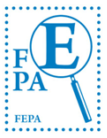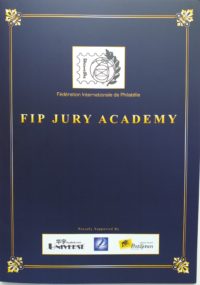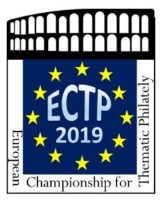FIP Jury Academy Training Courses 2 and 3: It can not work miracles with the non interested / hopeless jurors, but most of the participants will do much better evaluations
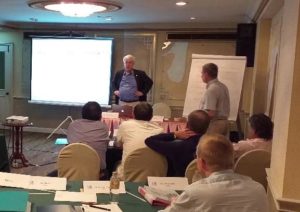
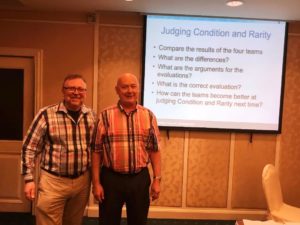
The outstanding Trainers: Peter McCann, Peter Suhadolc, Lars Peter Svendsen and Charles Verge
Participants from the FEPA Federations Belgium, Bulgaria, Denmark, Egypt, France, Germany, Israel, Slovenia, Spain and Turkey, together with colleagues of other parts of the world, took part in Bangkok in the 2nd and 3rd Courses once finished Thailand 2018. Five intensive sessions plus homework at nights, individual and team works and even final personal interviews with the extremely good trainers: Peter Suhadolç, Peter McCann, Lars Peter Svendsen and Charles Verge.
The FIP Jury Academy was created on the initiative of Bernie Beston, then FIP Vice-President. Lars Engelbrecht prepared most of the Manual which required an enormous amount of work and to apply his foresight, tenacity, philatelic judging knowledge and training skills. Postiljonen, Scandinavia’s leading Auction House, was since the beginning of the project the main sponsor.
The Moderator of the course was expected to be Lars Engelbrecht who resigned the day before starting. The new FIP President, Bernie Beston, did the job.
“The Purpose of the FIP Jury Academy is to develop the competences of Jurors & Team Leaders at the international level in order to constantly improve the quality of judging at philatelic exhibitions – and thereby ensuring accurate, fair and consistent judging. We would like you to be inspired and take home things that you can do to improve your work as a juror.”
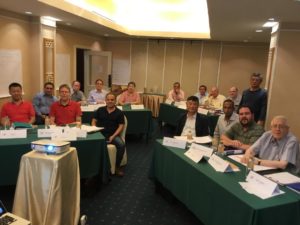
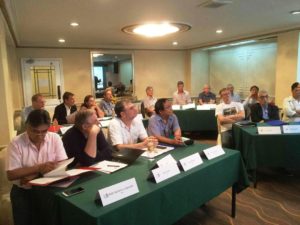
The participants of Class nº2 (left) and those of Class nº3 (right)
The big chapters of the Content were:
Part 1: Judging • The FIP regulations on jury work • Your Preparation before the exhibition • The first jury meeting • Judging • Jury critique / feedback to the exhibitors
Part 2: Team Leading • The FIP regulations on and team leadership • The Team Leaders preparation before the exhibition • Leading the Team • Leading Apprentices • Managing Jury critique / feedback to the exhibitors
Part 3: The judging criteria • Interpretation of the general judging criteria • How we judge the criteria
Part 4: Evening Assignment
Part 5: Judging of Exhibits
Part 6: Personal development • Self evaluation • Evaluation from Trainers • Personal Development Plan
Part 7: Giving Feedback to the Exhibitors
Part 8: Training in Feedback to the Exhibitors
Part 9: Evaluation of the FIP Jury Academy
Part 10: Regulations • GREV • Regulations for FIP jurors
The Courses were attended by a mix of very experienced jurors together with others with less experience. Once mentioned the hard and very efficient work of the Trainers, it is necessary to express also the importance of the presence as participant of Bernard Jimenez that with his knowledge and common sense was a great support to the Academy.

Ceremony of presenting the Certificates and Pin as FIP Jury Fellow to the participants. From left to right: Peter Suhadolc, Charles Verge and Peter McCann (Trainers), Claes Arnrup (Postiljonen AB) and Bernie Beston, FIP President and Moderator of the Course
Every point was developed in a clever and detailed way in the manual offered to the participants.
It is important to see how positive were the recommendations of the Course in many aspects, but we can made a concrete real example. It is the case of one the “roles” that can be found in a team, “The Constant Challenger”. Some jurors like to challenge all the points being given, all the opinions expressed by the others – all the time.
This is the positive evolution of a newcomer, starting very arrogant, permanently trying to be protagonist at any cost, even interrupting the normal sequence of the course, because his self-attributed exceptional knowledge. At the beginning he insisted in that the whole course was wrong and he was right when his evaluations were always quite different (much lower) in all criteria’s in all exhibits analyzed. Following the strategy of the course he finalized realizing how ridiculous was such behavior, changing mind and by the end he even evaluated higher than the rest of the colleagues!
Still with the very few exceptions of those hopeless not interested in learning / not really qualified to be acceptable jurors, in general terms it was a great experience for the participants, to be spread.
